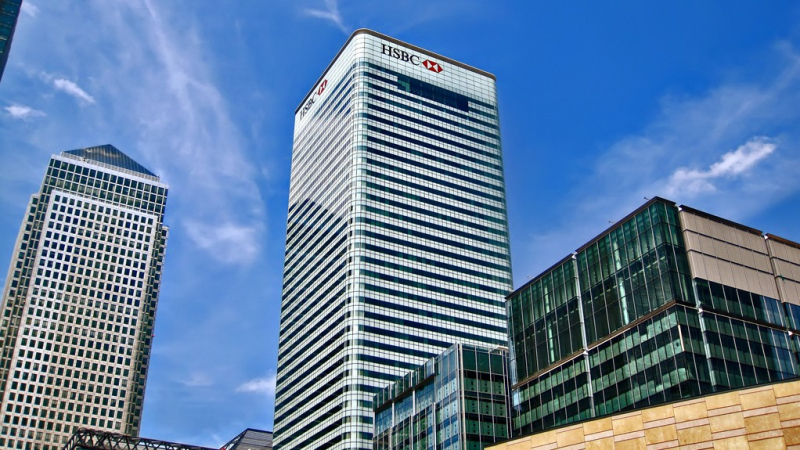Bank policy scan: HSBC is backtracking on its climate commitments

What is this bank policy scan about?
On February 17, 2025, HSBC (United Kingdom) updated its Thermal Coal Phase-Out Policy and its Energy Policy. The previous version of these policy documents were published on January 24, 2024 and July 28, 2024.
Why is this policy change important?
HSBC has committed to bring down the overall greenhouse gas emissions of its portfolio of clients to ‘net zero’ by 2050 or sooner, in line with a 1.5ºC climate scenario. To meet this goal, the bank needs to exclude finance for fossil fuel expansion projects and for companies developing these projects. However, according to the Banking on Climate Chaos Report 2024, HSBC features among the top ten banks that have provided most financing for top fossil fuel expanders between 2016 and 2023. It is therefore crucial to monitor any update of HSBC’s fossil fuel policies, to assess whether the bank is aligning its activities with its net-zero commitment or not.
What is the scope of this policy change?
This policy scan will focus on the modifications introduced by HSBC in its Thermal Coal Phase-Out Policy and its Energy Policy Update from February 2025. It will not include a full analysis of HSBC’s policy.
What are the key changes?
The policy includes a new exception that lowers ambitions
HSBC introduced the following paragraph as a preamble to both its Thermal Coal Phase-Out Policy and Energy Policy: “In limited cases, HSBC may approve exceptions to this Policy where the proposed transaction may not necessarily align to the criteria set out in the Policy, but HSBC is satisfied that it is within the intention of the Policy (including HSBC’s intention to support clients in their transition away from fossil fuels) and remains in alignment with HSBC’s Phase-Out Commitment – or “NZ50 Target” in the case of HSBC’s updated Energy Policy – (as defined below). This will be subject to enhanced due diligence and pre-approval by a senior risk governance committee and will take into account the facts and circumstances of the particular transaction.”
What is negative about this?
-
With this new wording, HSBC could now finance transactions that were prohibited under the previous version of its policy. For instance, HSBC could theoretically provide new finance for the creation of new thermal coal assets (thermal coal mines or coal-fired power plants) if it considers that the transaction aligns with the intention of the policy and with HSBC’s overall phase-out commitment.
-
The new wording also creates more opacity for the bank’s stakeholders, as HSBC will not have to justify nor inform publicly regarding the approval of such exceptions. HSBC clearly states in its policy that “Any reference in this policy to HSBC being satisfied with relevant matters is to HSBC being satisfied with such matters in its own opinion”.
The bank admits it will support energy clients with no net-zero targets
In its Energy Policy, HSBC details its engagement with clients around their transition plans to align with HSBC’s Net Zero by 2050 (NZ50) Target. However, in the updated version of its Energy Policy, HSBC indicates that “not all clients will have NZ50 targets”.
What is negative about this?
-
The purpose of a bank’s assessment of its clients’ transition plans is to ensure that the clients are aligned with the climate targets of the bank. When this is not the case, the bank should exclude this client, as otherwise it cannot meet its targets. It is therefore alarming that HSBC might continue to support clients that do not have net-zero by 2050 targets.
Conclusion - HSBC is backtracking on its climate commitments
The previous versions of the Thermal Coal Phase-Out Policy and Energy Policy of HSBC were far from sufficient in ensuring that the bank would meet its climate targets. Indeed, HSBC has not committed to excluding any kind of financial services or products to companies developing new fossil fuel projects or expanding existing ones. However, according to the International Energy Agency (IEA) any new fossil fuel expansion projects are incompatible with achieving a net-zero emission goal by 2050.
With this update, HSBC not only has not improved its policies, but it has introduced new elements that jeopardise the already limited ambition of its previous commitments, as it can now decide to approve a transaction that does not align with exclusions set out in its policy.
We therefore urge HSBC to immediately remove the new exceptions introduced in the updated policies and exclude finance for all Energy sector clients that: do not have a net-zero by 2050 target in place; develop new coal, oil and gas projects; or that seek to expand existing fossil fuel facilities.
Further resources
IEA, Net Zero Roadmap: A Global Pathway to Keep the 1.5ºC Goal in Reach, 2023 Update
HSBC net zero goal delayed 20 years, as CEO offered 600% bonus
